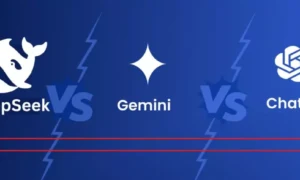From setting reminders to writing emails and planning your week — personal AI assistants are no longer just cool gadgets. In 2025, they’ve become essential digital partners that are reshaping the way we work, communicate, and live. Here’s how AI assistants are evolving — and why they might soon become your smartest friend.
Table of Contents
Introduction:
Remember when AI assistants could barely get your name right? Those days are long gone. In 2025, personal AI is more than a glorified calendar or voice command tool. It’s a deeply intelligent, context-aware system that learns you — your habits, preferences, tone, and even emotions.
From entrepreneurs to students, from busy parents to freelancers, more people are relying on their AI co-pilots to do everything from drafting business proposals to suggesting healthier meal plans. But what exactly are these tools doing differently now — and why is everyone talking about them?
🌐 What Is a Personal AI Assistant in 2025?
A personal AI assistant is a virtual, AI-powered helper that goes far beyond voice commands. Think of it as a hyper-personalized digital twin — one that understands your goals, anticipates your needs, and executes complex tasks across apps, devices, and platforms.
They can:
- Write personalized emails and reports
- Summarize meetings or research papers
- Schedule and coordinate with your contacts
- Manage your to-do list across work and life
💡 Why They’re Different Now
So what changed? The biggest leap came with contextual awareness and multi-modal AI. In simple terms, your AI assistant can now:
- Understand voice, text, and visual input
- “Remember” your style and preferences
- Learn from past interactions to get smarter over time
Tools like OpenAI’s ChatGPT (with memory enabled), Google Gemini, and Microsoft Copilot are leading the way — but many startups are also creating niche AI assistants for specific industries like health, law, education, and real estate.
⚙️ Everyday Use Cases: AI That Works With You
Here’s how people are using AI assistants today:
🧑💼 For Professionals:
- Drafting emails, slide decks, and reports
- Transcribing and summarizing Zoom calls
- Creating personalized follow-ups for clients
📚 For Students:
- Generating study notes from lectures
- Getting real-time help with complex problems
- Managing coursework and due dates
🧘 For Daily Life:
- Meal planning based on dietary needs
- Smart shopping lists synced with your fridge
- Reminders based on your habits and location
🧠 AI With a Personality
One of the most intriguing developments in 2025? Your AI doesn’t just understand you — it can sound like you, think like you, and even represent you.
- Want your assistant to write like you? It mimics your tone.
- Need it to respond to messages while you’re away? It drafts replies in your voice.
- Prefer a calm, witty, or highly professional tone? You choose its personality.
This customization is turning AI assistants from tools into companions — almost like digital extensions of ourselves.
🔐 But What About Privacy?
With great power comes great responsibility. As AI assistants become more embedded in our lives, concerns about data privacy and misuse grow.
Big players are working to build in strong encryption, local-device processing (so your data stays on your phone), and transparency over how data is used. But as with any tech, users need to stay informed and cautious.
🚀 What’s Next?
The next generation of AI assistants may:
- Speak multiple languages in real time (perfect for global teams)
- Use emotional intelligence to adjust tone based on your mood
- Work across all your devices seamlessly — phone, laptop, AR glasses, even smart cars
The goal? To make technology invisible and intuitive — so you spend less time managing tasks and more time living your life.
Final Thoughts: The Rise of the AI Sidekick
In 2025, AI assistants aren’t replacing humans — they’re amplifying them. They help us think faster, work smarter, and live more intentionally. The real revolution isn’t in the tech itself — it’s in what it frees us up to do.
As personal AI becomes more accessible and intelligent, one question remains:
What will you do with your extra brainpower?
Read More: Witness Prep for Professionals: A 2025 Survival Guide




